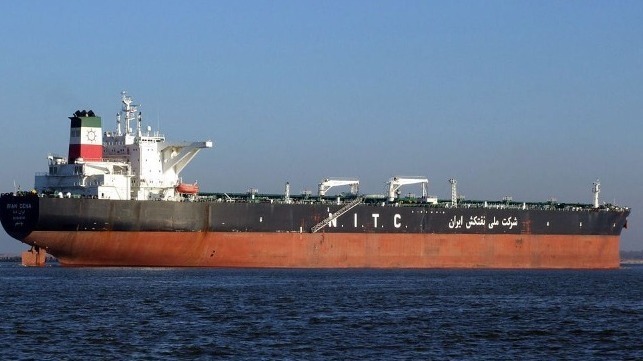US Creates New Sanctions for Chinese Buyers of Iranian Oil

Stringent new sanctions on Iranian crude passed the U.S. House of Representatives on Saturday and will likely be fast-tracked into law. The measures penalize Iran's leadership for the missile attack on Israel on April 13, and are attached to a must-pass package of aid for Ukraine, Israel and Taiwan.
Previous sanctions targeted Iranian vessels and exporters; the new rules target the foreign refiners that buy the oil - almost all Chinese - and the foreign bankers, shipowners and seaports that make the trade possible.
But sanctions are only as tough as the enforcement regime, and the White House has a disincentive to take a strict line: cracking down on Iranian exports would reduce the global oil supply, increasing energy prices and potentially nudging up inflation. The bill allows the Biden administration to issue 180-day waivers at its discretion when it is "vital to the national interests of the United States."
Given relatively permissive enforcement trends, China's independent refiners still plan to keep buying Iranian oil at their current pace, traders told S&P. The "teapot" refineries in Shandong are heavy consumers of discount Iranian cargoes, imported as "Malaysian" crude.
"I don't think [new sanctions] will alter the whole procedure," an executive at a Chinese teapot refinery told the outlet.
The specific measures in the new bill would impose sanctions on:
- foreign port owners or operators who allow sanctioned Iranian tankers to dock or transfer oil;
- shipowners or operators who engage in an STS transfer of Iranian oil;
- refinery owners or operators who buy or process Iranian oil;
- and any of their family members.
Ships caught handling Iranian oil could be banned from American ports for two years - a potential deterrent to casual participants who would like to trade their ships in North America.
A separate clause would expand financial sanctions to cover the Chinese banks that facilitate the Iranian oil trade, even for transactions that happen outside of the U.S. financial system. The assessment of each financial institution would be made annually and would be time-limited.
The European Union is considering a new sanctions package of its own, EU foreign policy chief Josep Borrell told BBC, and the details are being worked out.
